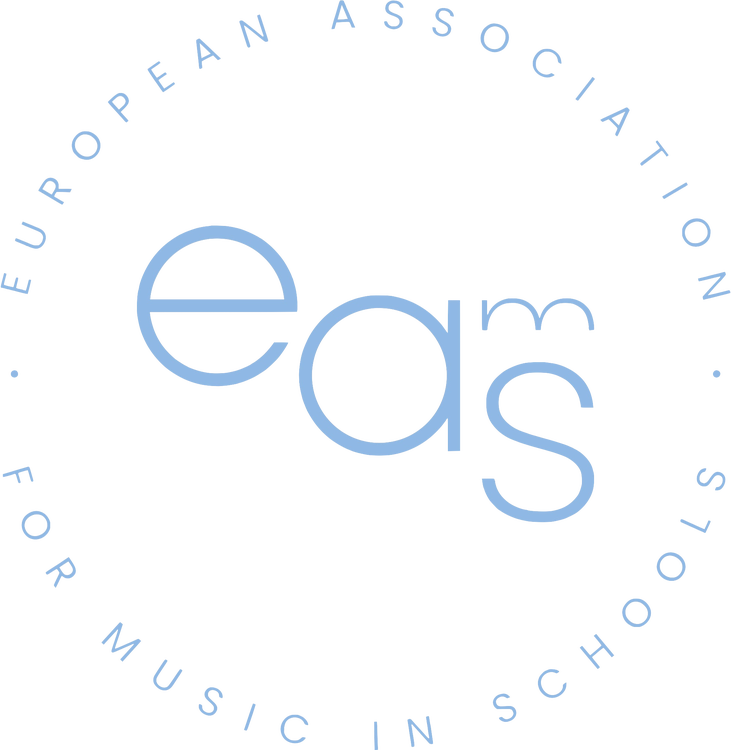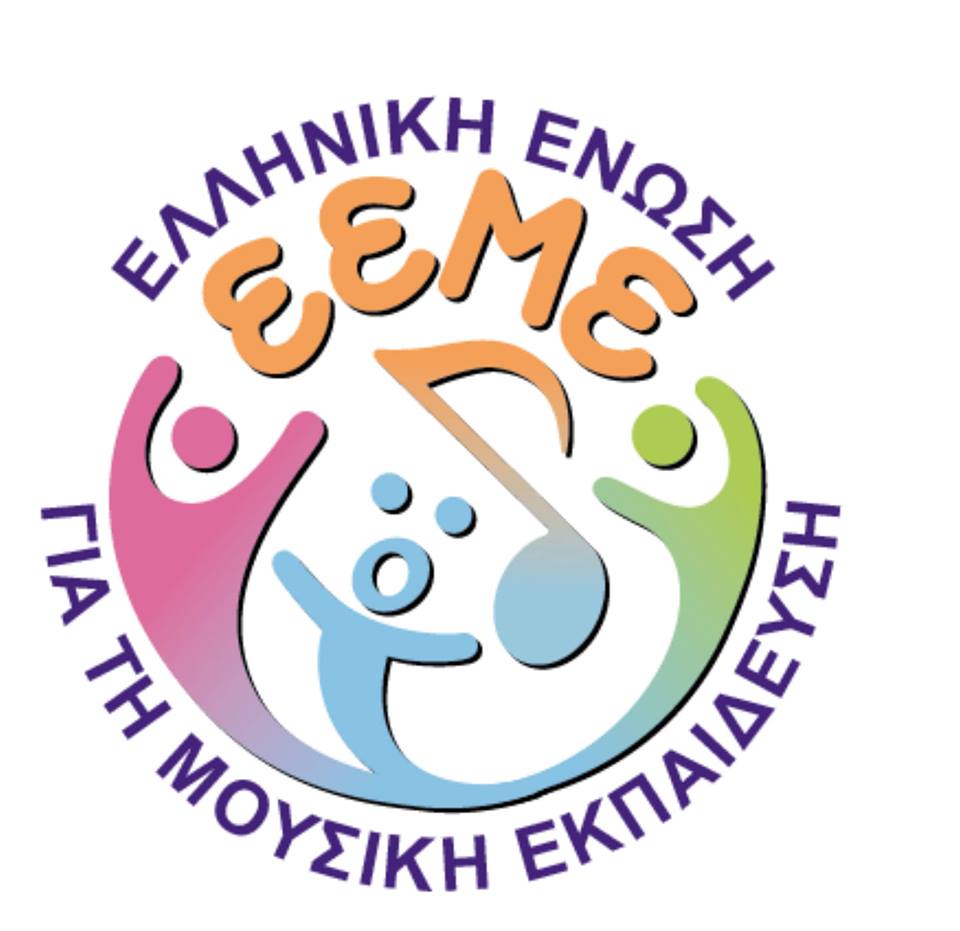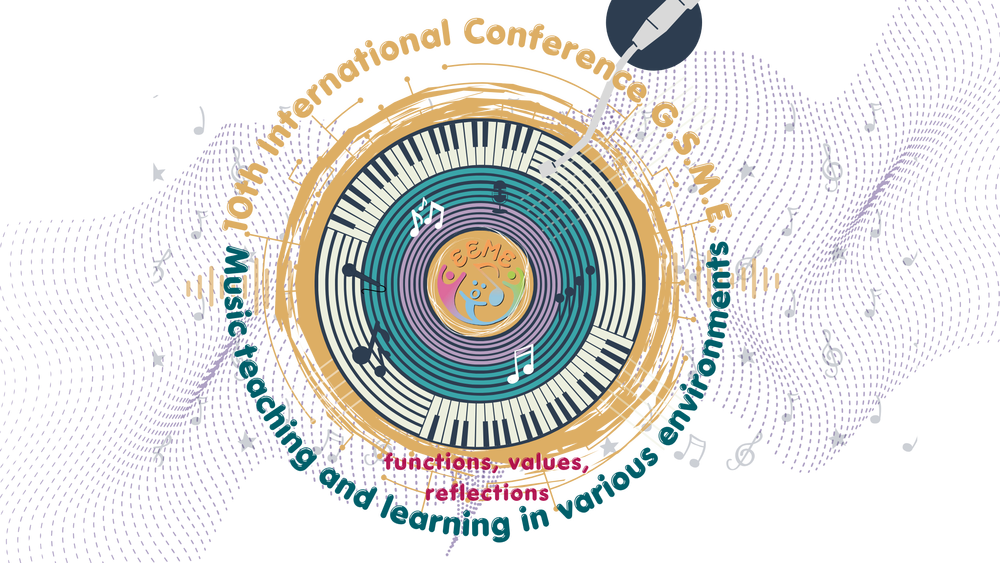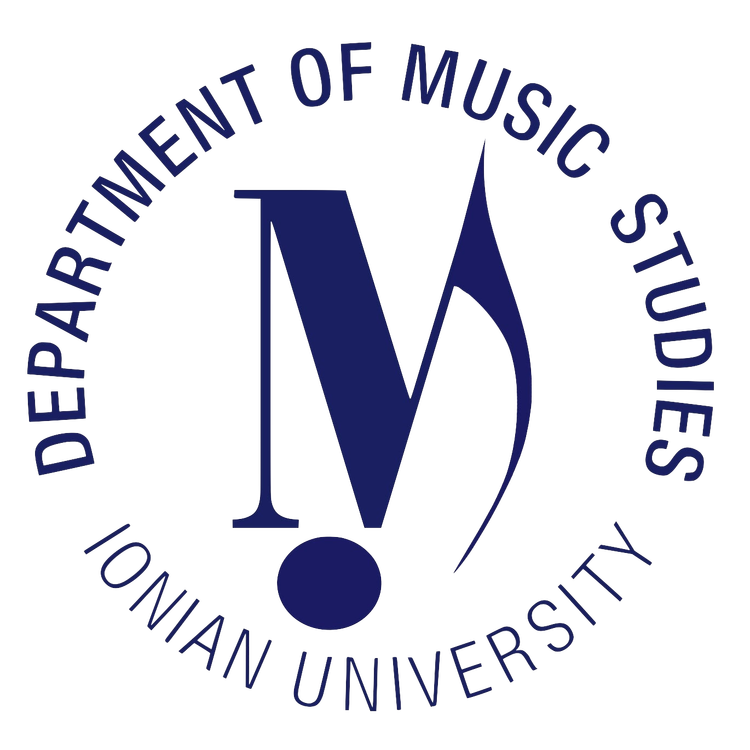10th International Conference of the Greek Society for Music Education
Music teaching and learning in various environments:
functions, values, reflections
31/10 - 2/11 2025
Ionian University, Corfu
Co-organized by the Department of Music Studies

European Association for Music in Schools (EAS ) Regional event
![]()
Under the auspices of the Hellenic Ministry of Education, Religious Affairs and Sport (68851/GD4/11-06-2025)
It is with great pleasure that we welcome you to the 10th International Conference of the Greek Society for Music Education (GSME), "Music Teaching and Learning in Diverse Environments: Functions, Values, Reflections," which is being co-organized with the Department of Music Studies of the Ionian University in the beautiful city of Corfu, from October 31st to November 2nd, 2025. This year’s conference, with the joy of meeting in person, offers a unique opportunity for creative dialogue, exchange of ideas, and reflection on the diverse environments that shape music education within the family, school, and community.
We invite you to actively participate in a fruitful scientific and pedagogical coexistence, where critical thinking, inclusion, and innovation will contribute to the transformation of music learning and, more broadly, our society. Let’s meet together and co-create a conference rich in inspiration, reflection, and new perspectives!
Important Dates:
Start of abstract submissions: Submission period has ended
Deadline for submitting proposals: Submission period has ended
Deadline for submitting recorded artistic proposals: Submission period has ended
Notification of acceptance or rejection of proposals: The review results are available at https://apps.eeme.gr/
Early registration with discounted fee: June 30, 2025
More information about the 10th GSME Conference can be found here:
Subject and Purpose of the Conference
Proposal Submission
Submission of Artistic Proposals
Information about Corfu – Hotels
Conference Proceedings
You can download the 10th Conference GSME Call: ![]() 10th_Conference_GSME_Call1ΕΝ.pdf
10th_Conference_GSME_Call1ΕΝ.pdf
Submissions/Registration: https://apps.eeme.gr/ - Information: This email address is being protected from spambots. You need JavaScript enabled to view it.









 Please wait...
Please wait...